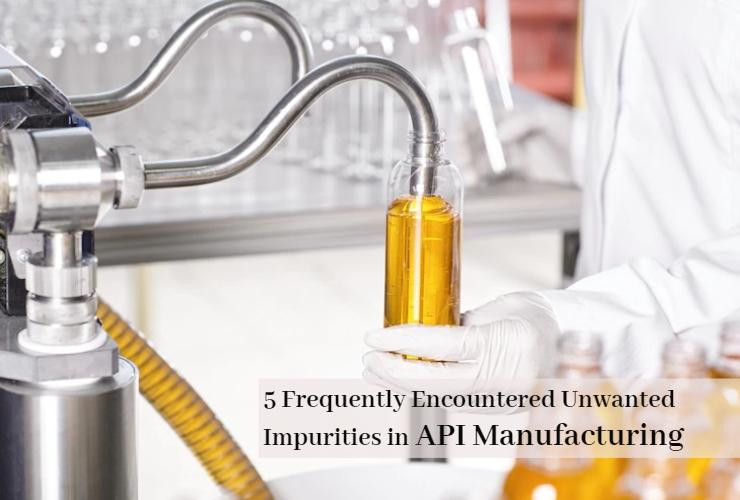As seamless as the functioning of third-party contract manufacturers may appear from the surface, they have their fair share of challenges that they deal with daily. One particular challenge is unwanted impurities while Active Pharmaceutical Ingredient (API) manufacturing that can compromise the quality of the final product. The strategies that contract pharmaceutical manufacturers apply to get rid of them make some the best of the bunch while leading to a significant drop in quality delivered by the others. Let's have a look at five frequently encountered sources of impurities in API Contract manufacturing.
- Unfit Raw Material: Sometimes even after relying on the best suppliers, the raw material may be of inferior quality. One can only understand how significant a difference this can create in the overall product quality if the starting material is not of fine quality. Best pharmaceutical contract manufacturers return such raw material, which results in a delay in the processing as they only start the process once the quality is at par with the set standards.
- Microbial Contamination: We know how nasty microbes can be. They are always on the lookout for a minute doorway to interrupt the process. Any failure in the upkeep of a sterile environment provides them the chance to strike the processing system. It is therefore extremely crucial that sterilized conditions are maintained at all times during manufacturing so that microbial impurities are minimized.
- Impurities Due to Storage Conditions: A slight fluctuation in temperature, pressure, and humidity can make a huge difference in the final product as these conditions can change the reactivity of the API. It is to be noted that storage conditions should be maintained not just during the production phase but also once the product has been packed. An end-user can only benefit from a medication that has been kept at the required temperature, the absence of which results in degraded API. Consumption of such a product is not only bereft of the benefit that the medication was supposed to offer but may be lethal in certain cases.
- Improper Packaging: The packaging can give rise to elemental impurities leaching into the drug. Although this rarely occurs, the chances of it happening cannot be zeroed. Packaging material should always be tested for any reactivity with the API and other constituents of the drug. It is therefore highly important that pharma companies choose their third-party pharma manufacturers after proper scrutiny and background of the manufacturers as any company clearly would not want an oversight to cause damage to their reputation and customer trust.
- Impurities Due to Degradation of the End Product: No matter how rigorous the manufacturing process is; the end product always gets degraded to an extent. This type of impurity is called a degradation product. It calls for the mandatory practice of risk/benefit analysis and thereby carrying out the necessary action.
Though theoretically, all impurities should be removed from the final product, this is practically impossible and therefore a limit has been set for the permissible amount of impurities. Best pharmaceutical manufacturers are always vigilant of every process. For instance, Akums Drugs & Pharmaceuticals Ltd. ensures that only the best quality product is supplied to its partner companies. Having a firm quality check in place, Akums stands tall among Indian contract-manufacturing pharmaceutical companies to manufacture and market pharmaceutical products along with serving clients globally.

